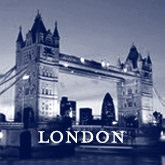European Commission Settles Two Swiss Franc-Related Derivatives Investigations
A View from Constantine Cannon’s London Office
By Ana Rojo Prada and James Ashe-Taylor
The European Commission has settled two cartel investigations and sanctioned four major banks in the Swiss Franc-related derivatives market, imposing total fines of approximately 94 million euros, for violations of European Union antitrust rules.
Interest rate derivatives (including swaps, futures and options) are financial products used by banks or companies as insurance mechanisms to manage the risk of interest rate fluctuations.
The first cartel investigation settlement involved collusive behaviour between the Royal Bank of Scotland (RBS) and JPMorgan between March 2008 and July 2009. The cartel sought to influence the Swiss Franc Libor benchmark interest rate as a means of distorting the pricing of the derivatives indexed on it. The cartel engaged in discussions concerning one of the bank’s future Swiss Franc Libor rate submissions and exchanged information on trading positions and intended prices.
This cartel settlement follows two other cartel decisions on financial benchmarks, in which the Commission fined several banks for their involvement in manipulating Euro and Yen interest rate derivatives.
The second settlement decision involved a price-fixing cartel on bid-ask spreads, which took place between May and September 2007. A bid-ask spread, which is one of the elements of the price of certain financial derivatives, represents the difference between the price at which a bank is willing to sell and to buy a product. The cartel included the four major market makers (RBS, JPMorgan, UBS and Crédit Suisse). These banks agreed on the quotations of bid-ask spreads regarding certain categories of short term over-the-counter Swiss Franc interest rate derivatives. Although the banks quoted wider fixed spreads to all third parties, they maintained narrower spreads for trades among themselves. Their objective was to lower their transaction costs and maintain liquidity between themselves. However, the banks also sought to manipulate the market at their competitors’ expense by preventing them from participating in the Swiss Franc derivatives market on equivalent terms.
RBS blew the whistle on both cartels in Swiss Franc-related derivatives, thereby earning full immunity. JPMorgan, also involved in both cartels, collaborated in both probes and obtained a 40% fine reduction in the Swiss Libor benchmark interest rate cartel and a 25% reduction in the bid-ask cartel under the 2006 Leniency Notice. UBS, which was involved in only the bid-ask cartel, also collaborated with the Commission and obtained a 30% reduction in its fine. Crédit Suisse was the only bank not to benefit from the leniency program. However, all infringers benefitted from a 10% discount in their fines by settling the investigation with the Commission.
These are the 15th and 16th settlement decisions since the EU settlement procedure for cartels was introduced in June 2008. Under this settlement procedure, in exchange for an admission of liability, settling parties benefit from a reduction in their fines and an abbreviated Commission procedure.
Outgoing EU antitrust chief, Joaquín Almunia, stated earlier this year that other benchmarks important to relevant economic players in very important markets will continue to be scrutinized by EU watchdogs.
Current EU probes include the investigation of the benchmark for gold by the UK Financial Conduct Authority and the investigation by the Commission of the prices communicated to the benchmarking service Platts regarding oil and biofuel.
– Edited by Gary J. Malone
Tagged in: Antitrust Enforcement, International Competition Issues,